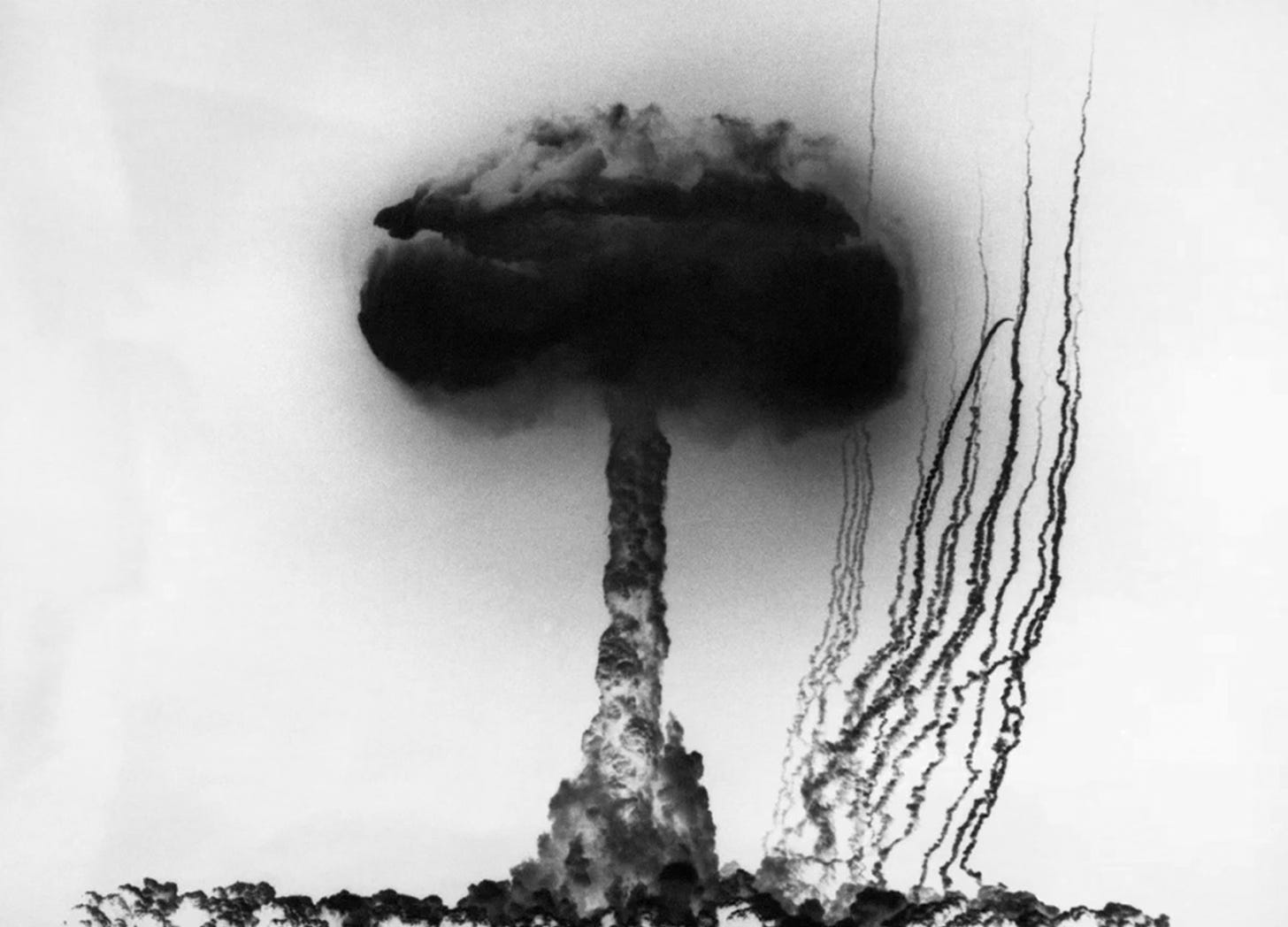The Denouement of Disaster
An urgent plea to pursue peace
For the last three years, the world has avoided the worst in Ukraine: a direct conflict between NATO and Russia. Even during the nearly five decades of the Cold War, the United States and Soviet Union did not engage in direct combat. A conflict in 2025 would, almost assuredly, mark the beginning of the largest, and deadliest, war since 1945. It would bring an outmatched Russia against an unorganized NATO, with the looming spectre of nuclear war as real as it has ever been in human history. The stakes cannot be higher, and the need to act cannot be more urgent to exercise the levers of diplomacy before we are engulfed in the rage of war.
As President Trump appears to cede the responsibility of peacemaking, and protection, to Europe, the need to deliberate American intentions in the region has never been more clear. We should, as President Trump has pursued, task European leaders to take the bulk of their continental defense to allow for the United States to address our peripheral security needs, including the threat of China and the security of South America. However, the United States must be clear when, and where, we will defend our NATO allies, and what that defense will look like. We cannot allow a paroxysm of escalation, brought by fiercely anti-Russian Eastern European states, to define and dictate an American response.
This danger is only increasing following President Trump’s expressed approval of Russian aircraft being shot down after repeated incursions over the last month. We are rapidly reaching a point where, for instance, Poland will shoot down a Russian aircraft over Polish airspace, prompting Russian forces to escalate in a tit-for-tat fashion, prompting more shootdowns. This escalatory cycle could, in the course of weeks, bring NATO and Russia into an inescapable spiral towards mutual destruction. The United States must make clear that unless clearly attacked by Russian forces, the United States of America will not intervene to defend Eastern European allies.
The most damnable part of this entire dilemma is how flatly un-democratic it is. The American people, quite clearly and reasonably, have felt lied to time after time by disastrous and dangerous interventionism. We are first told that the defense of Ukraine is measured, and that our security establishment has our best interests at heart. Then, after escalating slowly and steadily, we are told that there is simply no other choice but to act decisively to deter even more carnage! We have been, according to these elites, pushed to a conflict we had no part in exacerbating and no choice but to intervene in. When such a conflict does not bring the dividend of democracy we are promised, and while Americans still sleep on our streets addled by foreign drugs, we are told to not disrespect the valor of those who died to defend us thousands of miles away.
We are increasingly, both as a country and as a world, acting as if the threat of nuclear conflict is a bygone problem. Such a belief ignores the basic facts. In 2017, President Trump nearly engaged in direct strikes against North Korea, prompting Dictator Kim Jong Un to believe his regimes survival was dependent on inflicting enough damage to deter the United States from further aggression. In 2022, the United States viewed the threat of Russian nuclear detonation against advancing Ukrainian forces as a real threat. Senior Russian commanders were openly discussing the logistics of a battlefield detonation, including discreetly transporting such a weapon to avoid U.S. detection. This worrying trend should be more than enough to engender a global push, led by the United States, for nuclear disarmament and non-proliferation.
I want to be clear here that I am not, and never would, apologize for Russian aggression. I believe the murder of innocent civilians and the encroachment of sovereign soil are abject evil no matter if their name ends with Bush, Putin, or Netanyahu. We must remember that these exercises are not a game where one side wins and another loses. We are on the denouement of global catastrophe. We all can feel, and see, that this world is on a march towards war once again. What will we do to fix it? Will we bury our heads in our ideology, burrowing deeper the more untenable this world looks? Or will we admit that we have a chance, at the dawn of a new world, to see the world as it is and not as we wish.


